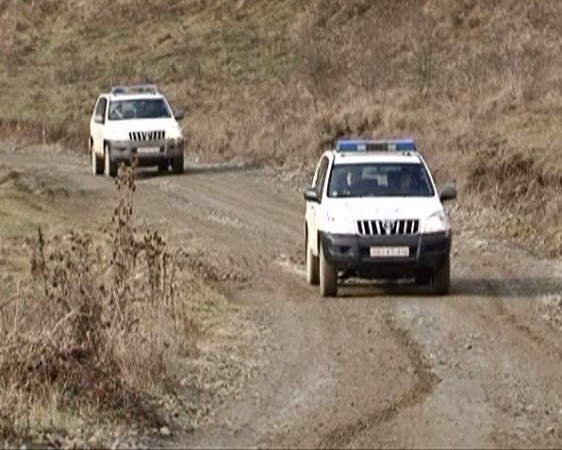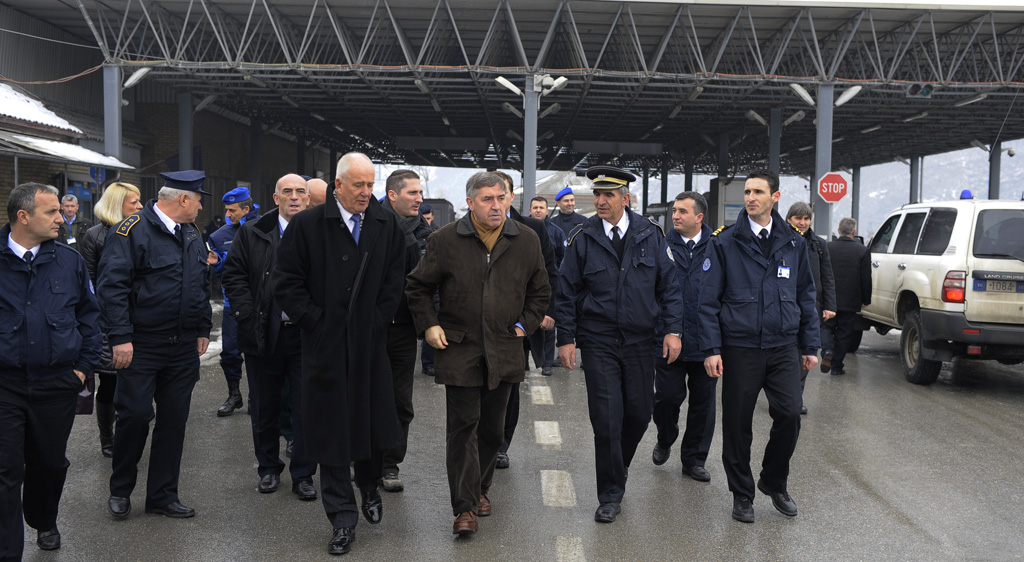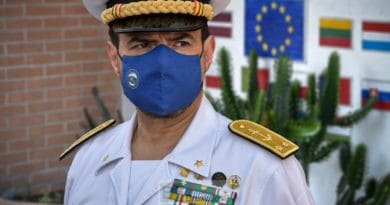The Eulex mission in Kosovo changes focus, and loses weight

(BRUSSELS2) The mission to strengthen the rule of law (EULEX) in Kosovo will reduce its staff and refocus its missions in the country from this summer, announced today (25 May), Hansjörg Haber, the commander of operations civilians of the European Union. " Our message is clear: the Eulex mission will not stay in Kosovo forever. Much progress has been made. Eulex needs to adapt and prepare for this disengagement. The mission will thus only have a workforce of 2000 people against more than 3000 currently authorized: 1200 international experts + 1000 local (*). Part of the missions will be carried out by the special representative and the delegation of the European Union on the spot.
Mission Focus Change
The mission will also focus on certain issues, such as the strengthening of justice in particular. And its organization will be reviewed. While it currently has three pillars (police, customs, justice), it will be restructured into two pillars: what is called MMA (monitoring, mentoring, advising, in other words observation, assistance and council) and the executive mission (justice, police, customs). Overall, it is justice or rather the judicial sector that will be privileged. In particular, the office of the special prosecutor will be strengthened. It currently has 11 European prosecutors and 10 local prosecutors, assisted by 13 European and 20 local lawyers, it should be increased significantly. The stock of files is, in fact, significant: there are currently 316 cases under investigation, half of which are financial crimes, a quarter of war crimes and another quarter of organized crime. The objective will be to deepen and accelerate the procedures in progress and, above all, to focus on the most "hot" cases: war crimes, the fight against corruption, organized crime.
This change in focus and workforce is accompanied by a reduction in budget, as mentioned above; the latter rising to just over 100 million euros. A question of realism too. The means had to be found to launch the new European missions. For the same budget, it was therefore necessary to draw on the budgets - and also on the potential staff - of the mission in Kosovo.
Decrease in FPU police units
The number of police units (FPU) will drop from 4 to 1 (which amounts to a return to reality), since there is only one left: the Polish FPU, with a workforce of around 100 people. Romanians, French and Italians having already left the field. The relay will have to be carried out by the local police. Kosovo "will have to take more responsibility for security" confirms Haber. This function is currently devolved to the Poles but " if there are other volunteers, we are takers” explained a European diplomat.
... and creation of an SPU unit
In fact, part of the functions devolved to the FPUs will be assigned to SPUs (Supplementary Uniformed Police), who are in the process of being recruited especially for this purpose (the deadline for applying is... today). These SPUs will thus carry out the static guard of strategic places, such as for example the court of Mitrovica. This will relieve the only remaining unit of FPU which will be able to concentrate on maintaining order and crowd control. This new force will consist of approximately 100 personnel divided into three platoons and a support unit. Or the equivalent of an old model FPU. But this will be provided entirely from the Community budget.
New planning...
The strategic review of the mission has been conducted for several months, since the fall of 2011, under the leadership of the CMPD - the strategic planning department of the diplomatic service. The main axes were discussed and approved by the EU ambassadors in the Political and Security Committee (PSC). A new Conops (concept of operation) was presented in March. The operation plan was approved today (May 25), as an A point (without discussion) at the COPS. And the decision modifying the mandate will be approved - in the form of a written procedure - next week by the 27.
...and a new decision
The adoption of this decision necessitated some adjustments, in particular concerning the designation of the institutions of Kosovo. They refused to allow the mission to take place solely from the angle of Security Council resolution 1244, while the 5 EU states which did not recognize Kosovo wanted this mention to be maintained. Following the "Asteric Agreement" - negotiated under the aegis of the European Union (with Robert Cooper as chief negotiator) - a precise footnote and this reference does not prejudge recognition of the Kosovo, and refers to both resolution 1244, Kosovo's declaration of independence and the judgment of the International Court of Justice. This is the first time that this "asterisk" finds its concretization in an official document.
Waiting for a new boss
A new head of mission must be appointed. But the first recruitment carried out did not bring candidates with a sufficiently refined profile. According to the information that reached us, two candidates were in the running: a Finn and a Pole. In the meantime, it is the current head of mission Xavier Bout de Marnhac who remains on the ground, and could be extended beyond June, in order to carry out "in good conditions the transition" explains a European official. This mission in Kosovo is, in fact, rather difficult and delicate to carry out. With interlocutors whether Kosovars or Serbs, experienced in all political maneuvers. American and Russian diplomats also remain very active, supporting their respective proteges.
(*) This figure corresponds to the "authorized" maximum, that is to say budgeted. This does not automatically mean the number of people in the field. Thus currently, there are between 1400 and 1500 international experts. Certain calls for recruitment have therefore not been launched to renew the workforce. Which means that the reduction has already started.
Read also:

